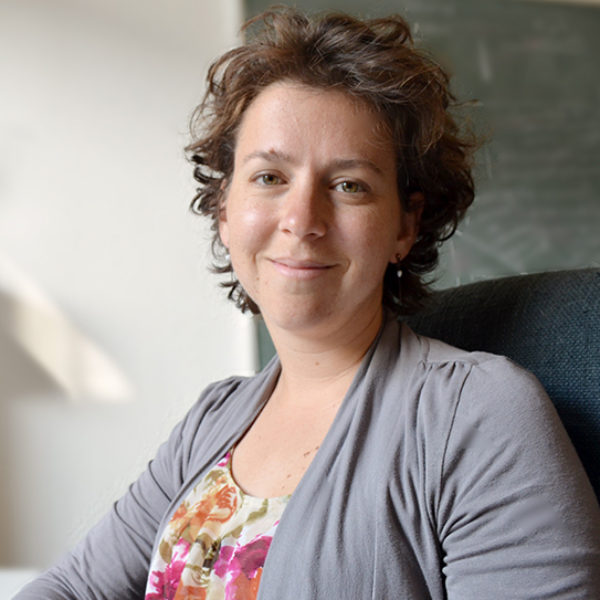
Image by Lieven Van Melckebeke.
The Cult of Doing and Human Flourishing
In 2013, Sheryl Sandberg’s Lean In: Women, Work and the Will to Lead called for women to speak out, act up, and lean in to claim their position in corporate and societal leadership. Both heralded and scolded by feminists alike, her book essentially framed the problem and solution to women’s inequality in a similar way: work harder, be more effective, achieve success.
I’ve come to a new-found appreciation for being over doing. My path to fulfillment has more to do with being more rather than doing more.
There seems to be an increasing call for being, above and beyond doing, as a path towards human flourishing from larger parts of society as well. Brené Brown’s 2010 TED talk on vulnerability probably would not have gone viral if it hadn’t spoken to a strong need felt among its viewers to value being themselves more, imperfections and all, over working harder and more efficiently.

In January this year, MIT senior lecturer Otto Scharmer presented one of the largest attended massive online open courses on his Theory U, a leadership and social innovation theory that proposes that “the quality of the results we create in any kind of social system is a function of the quality of awareness, attention or consciousness that the participants in the system operate from” — or, in other words, a better future arises from a better way of being. Called “presencing,” Otto Scharmer has used his theory to consult governments and corporations in Africa, Asia, and Europe.
The growing wave of interest in meditation and spirituality is another trend that speaks to this sentiment. From mindfulness as a stress-reduction technique to yoga classes at work, spirituality lite has become an increasingly accepted currency of modern-day, secular life.
All of the above has shifted my thoughts on the relationship between being, the cult of doing, and human flourishing. Human flourishing doesn’t simply happen by “doing well-chosen work, more effectively.” Instead, the best modes of doing happen when we hold space for a higher way of being. In the words of Khalil Gibran’s The Prophet:
“When you work you are a flute through whose heart the whispering of the hours turns to music.”
Mihaly Csikszentmihalyi’s research on the state of being in flow can probably be characterized as the modern day, academic equivalent of Khalil Gibran’s words. In his book Flow, Csikszentmihalyi analyzes the conditions that lead people to experience flow, or, ultimate enjoyment. He found that people from around the world described being in flow in similar ways, one of which is the merging of action and awareness. We experience ultimate enjoyment when our doing and being cause us to be transformed into “a flute through whose heart the whispering of the hours turns to music.”
My predilection to doing as the path to greater well-being didn’t come out of nowhere. Two years ago, I started my own coaching practice with the phrase “heart work” as my business name and leading philosophy. I picked this heart-felt alliteration because it reflected what I believed was the best path towards greater flourishing for my clients: women doing more personally meaningful, purposefully chosen, hard work.
The adulation of hard work, or doing more, is a surprisingly resilient element of an affluent society. Even though the widespread use of online technologies such as the Internet, smart phones, and social media have allowed us to technically do more in shorter amounts of time, thus freeing us up to potentially spend more time not doing, the pressure to do hasn’t dissipated in the least. From productivity tips on personal effectiveness on websites like Lifehacker to time-management gurus like David Allen (whose “Getting Things Done” method has become so well-known that it’s often simply referred to by its acronym GTD), the cult of doing is still ever-pervasive.

The growing popularity of selfies and “Insta-capturing” our experiences is another reflection of Western society’s belief in doing as the ultimate way of being. My husband and I are no strangers to this; his Instagram feed of good meals, beautiful sunsets, and memorable moments has been the best way for my extended family to stay up to date on our being while living abroad in Germany. The ultimate way of being in today’s cyber-world seems to be the very act of capturing, and thus doing, certain moments of our lives.
The biggest impact I’ve been able to make in my clients’ lives is on their states of being rather than changed acts of doing. The coaching paradigm itself is perhaps the best way of exemplifying the belief in doing as a primary method to achieving a better way of being. After each session, I’ll ask my clients to come up with five things they’ll do between our sessions to start to move towards greater personal well-being.
Fundamental to all of the above seems to be this thought: I’ll be a better, happier, more fulfilled person through more (focused) doing. I do (or have done), therefore I am. And yet, lately my views on this have started to shift, subtly.
Placing greater value in being over doing is particularly important for high-achieving women. In her book The Heroine’s Journey, psychotherapist Maureen Murdock describes the tumultuous path ambitious women have to walk to achieve heartfelt fulfillment, beyond the masculine modes of success (materialism, stature, power) that patriarchal society have taught us are the end-all and be-all of well-being. “Finding out about being instead of doing is the sacred task of the feminine,” says Murdock. “Our mindless doing has created incredible destruction on this Earth.”
Perhaps one of humanity’s challenges this century won’t necessarily be to do more better and faster, but to refine our ways of being and to let our actions flow from this. As an ambitious woman myself, the easiest way I’ve found to lean in to better doing through being is with a simple Sufi meditation: “I” on the in-breath, “Am” on the out-breath. And then I’ll get back to work, with vigor.


